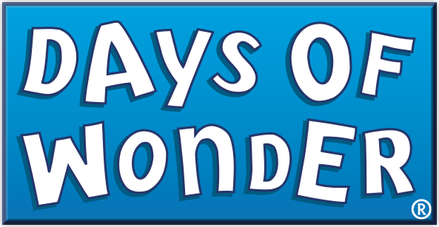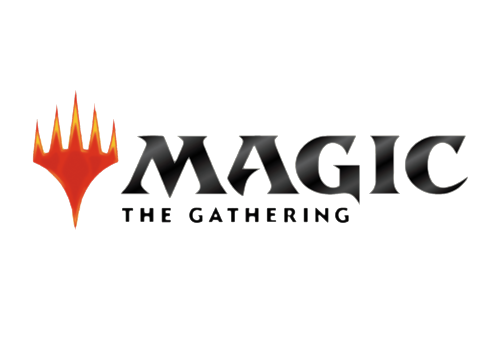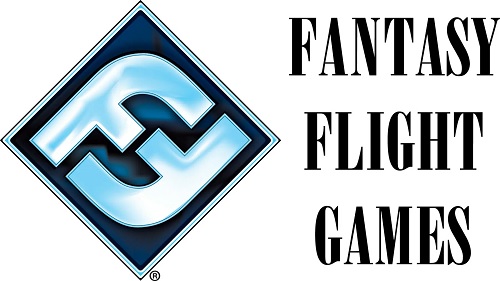Thanks to jet lag, I have a bit of time to write about one of my finds of SPIEL ’22: Philosophy, a game by designer Galen Goodwick and publisher Quality Beast.
Philosophy is pitched as a conversation between two friends, with these friends taking turns pitching ideas in a conversation until one of them draws a conclusion, at which point the other player quietly says, “Ah, I see” — by which they mean, “Congratulations, you have won.”
In more general terms, Philosophy is a two-player, perfect information abstract strategy game in which you win the game if you can place three of your pieces in a line without the opponent’s pieces also being a line at the same time.
Ken Shoda is oblivious to the looming fox
Each player has the same set of twelve pieces, and on a turn you must enter one of your pieces onto the board or else you lose. You enter pieces in the central 3×3 grid, with the center space being off-limits for the first placed piece.
Each piece has an attack arrow pointing to either a side or a corner, in addition to a directional arrow or other icon in the central space. When you enter a piece, if the attack arrow points to an adjacent opposing piece (exceptions below), the newly placed piece carries out its effect.
In the image below, the gray numbers indicate where a piece was first placed, and the red numbers indicate where that piece is now located. I started with a piece in the lower-left corner, then Ken used his diagonal two-space push to move me to the perimeter of the playing area. (If your piece is pushed out, it returns to your pool of pieces.) I responded by pushing his piece up, then Ken bumped me out, placing two of his pieces in a row and threatening victory next turn.
Well-used, non-final game pieces
Half of the pieces are straightforward; place them adjacent to an opposing piece, and they push as indicated. Two pieces push an opposing piece exactly two spaces away. Four special pieces allow you to:
• Decision: Push an opposing adjacent piece in one of two directions.
• Toss: Hop an adjacent opposing piece over the newly placed piece, like you’re throwing trash over your shoulder.
• Rephrase: Rotate an adjacent piece — whether yours or your opponent’s — and if you rotate your piece, the effect of that rotated piece happens.
• Persuade: Move an adjacent opposing piece one space towards the newly placed piece, which therefore moves your piece, too.
Any time a piece moves, if other pieces are in the way, those other pieces move in the same direction to make room.
What’s more, if you move an opposing piece and it ends up in front of the attack arrow of one of your other pieces, the effect of that newly triggered piece happens, giving you chain reactions on the board like a pinball machine.
This last aspect led to many, many takebacks for both Ken and me. You place a piece that seems like it does what you want to do, then the chain reaction kicks in and you see that you’ve set up the opponent for victory. Whoops. Take it back and try again. (I have no idea whether the rules allow for takebacks, but seeing as we’re not in a tournament, I fine with them. Based on the concept of the game, the goal is to create a web of ideas so convincing that your fellow human can’t possibly escape your inevitable conclusion. Conversations always have lots of “Let me restate that…”, so takebacks feel right in this game.)
Ken’s about to lose unless he sees it…
My friend Ken Shoda and I ran across this game while knowing nothing about it, then played four times, and that still felt like we were barely wading into a deep reservoir of gameplay. One thing we both quickly realized is that the persuade piece is incredibly powerful, mostly because it’s the only piece of yours that can move itself. (Rephrase lets you rotate one of your pieces, but it stays in the same space. All of the other tiles don’t affect tiles on the same team.)
In the image above, I can place persuade to the left of Ken’s piece in the center of the board, then those two pieces would slide one space left, giving me victory. If, however, he places a piece above that central space (that is, towards him), then persuade would create a three-in-a-row for both of us at the same time, which means that no one wins…until Ken takes his turn and breaks my row while leaving his untouched. (Ken saw the threat, and the game lasted much longer, with lots of threats created — often two at a time — and resolved.)
Speaking with Quality Beast founder and head of game development Dylan Howard Cromwell, I discovered that Philosophy is being crowdfunded on Gamefound ahead of an anticipated April 2023 release. (Disclosure: I have now backed this project.) The crowdfunding project includes extra sets of pieces should you wish to play with three or four players; with four, you play in teams, alternating play and needing three in a row of one teammate’s color to win.
I’m often baffled by publishers who run crowdfunding projects during a convention given the headaches that entails, not to mention the notion that someone would pledge for something in the future instead of buying a game they could play right now, but hey, I just discovered a game that’s being crowdfunded and I backed it based on how much I enjoyed playing, so I should stop being baffled by this practice.






